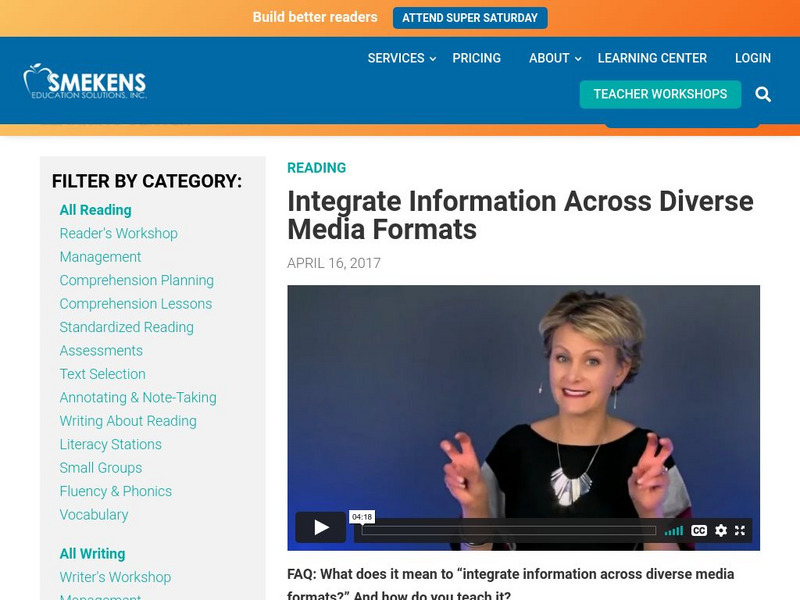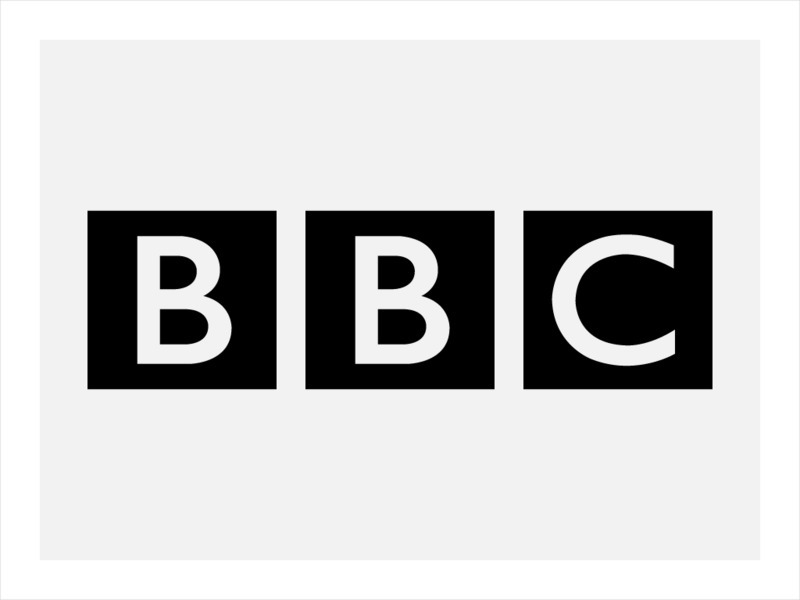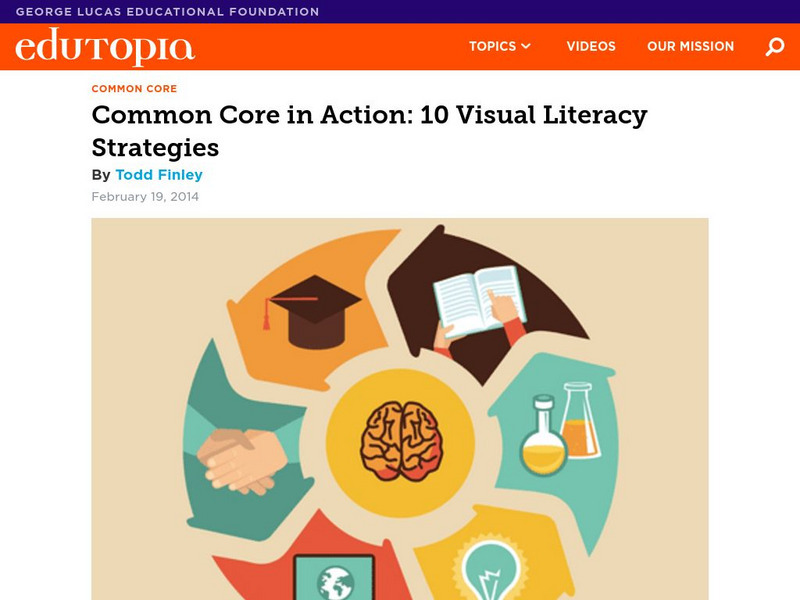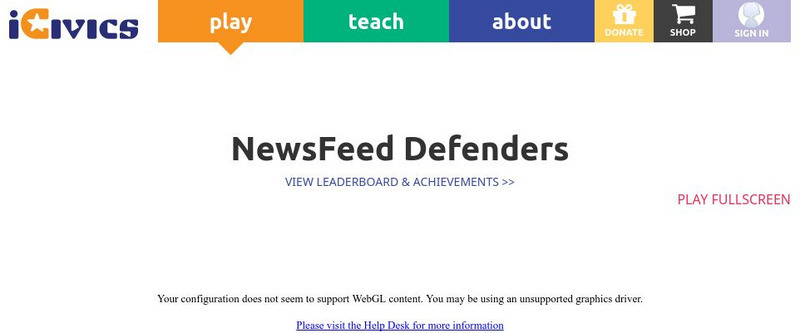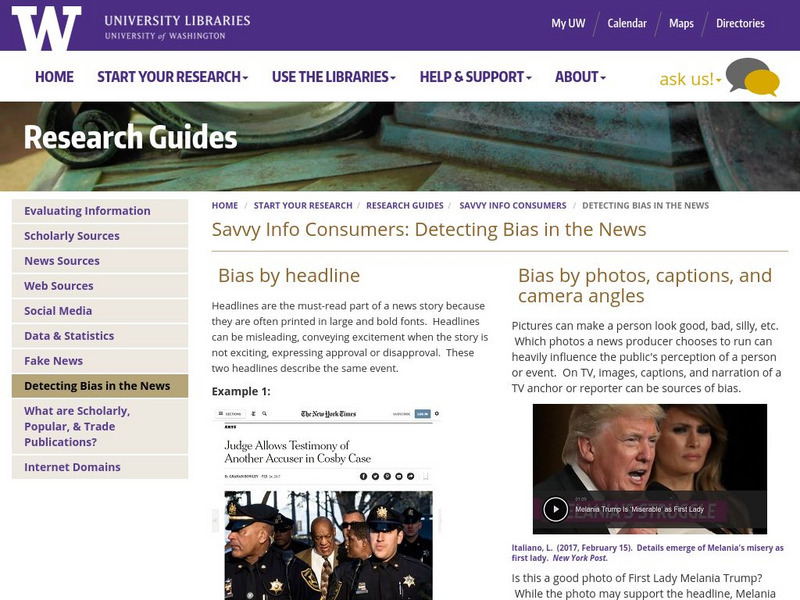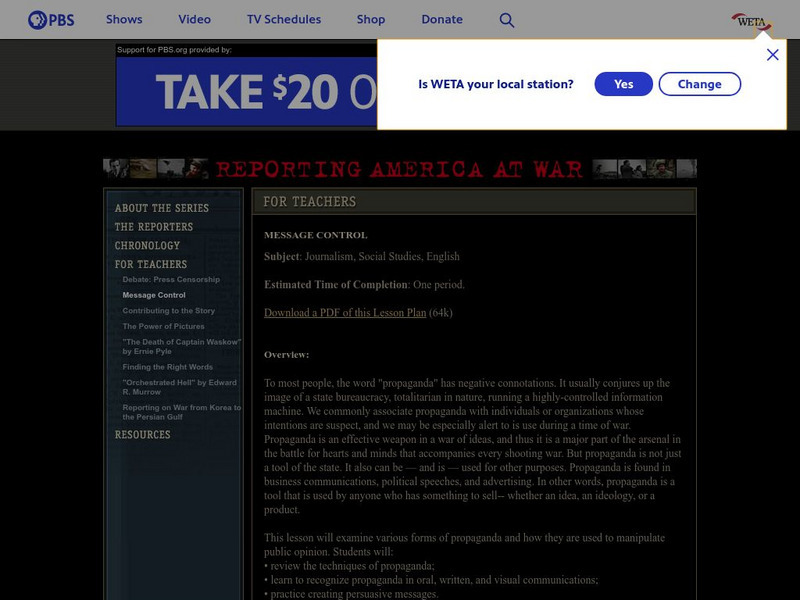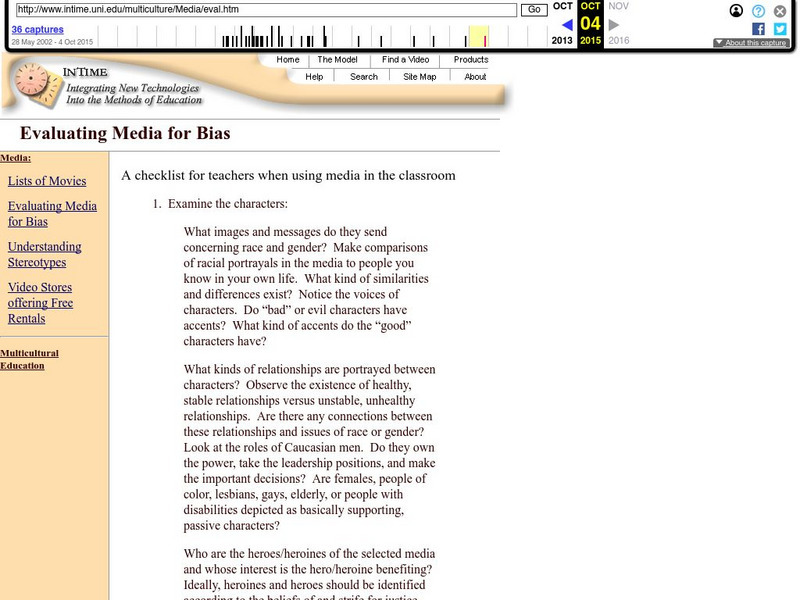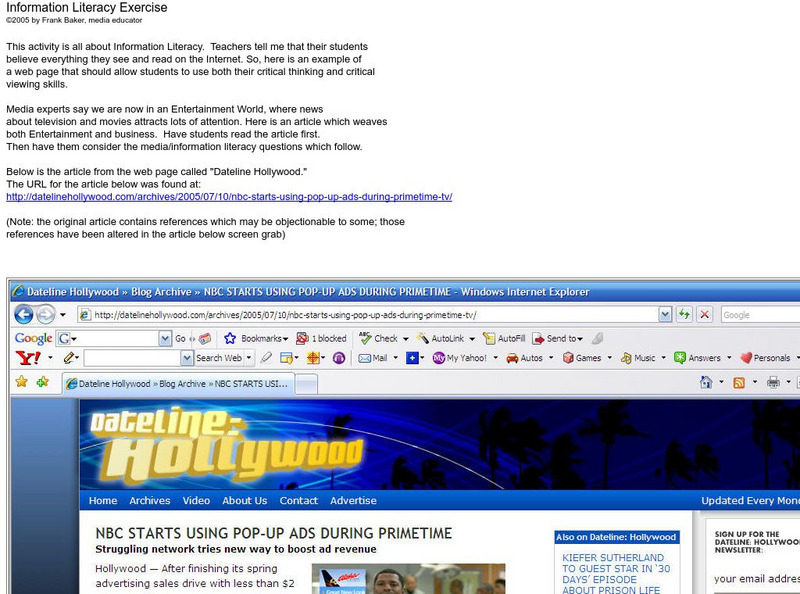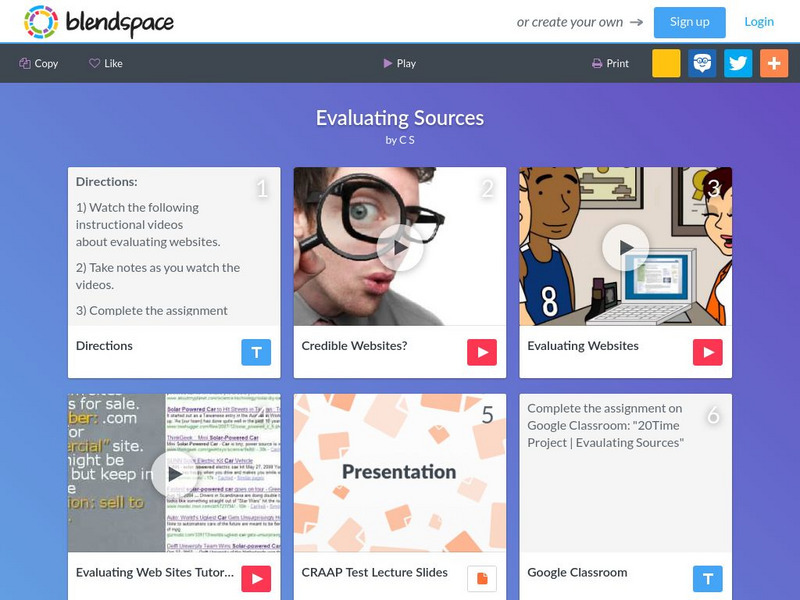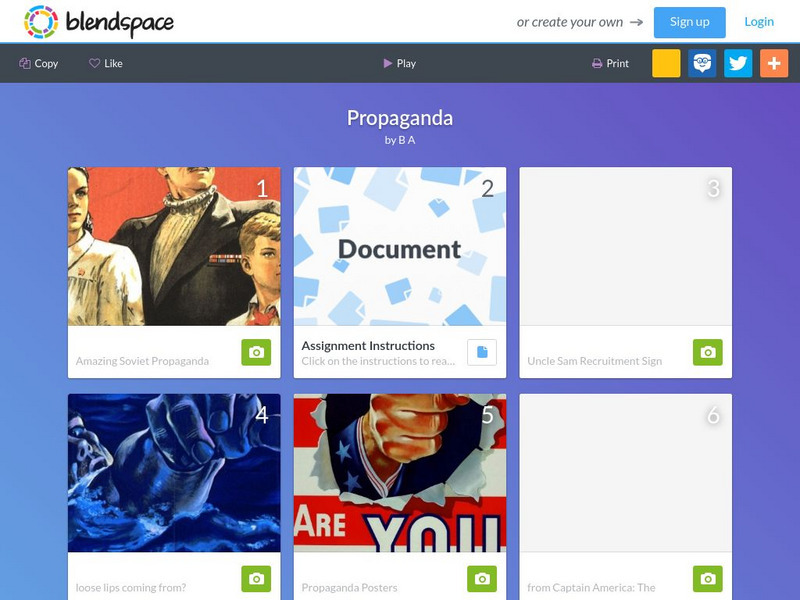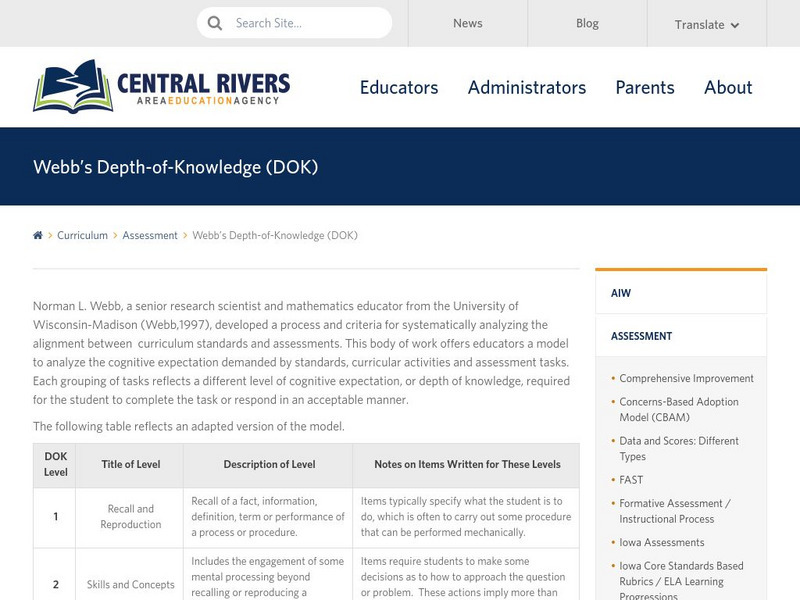Hi, what do you want to do?
Other
Smekens: Integrate Information Across Diverse Media Formats
Read about strategies to help students integrate information across diverse media formats. Includes video. [4:18]
Other
Rhetorica Network: Media / Political Bias
A detailed explanation of how bias works is offered at this site, including critical questions for detecting bias in writing.
TED Talks
Ted: Ted Ed: How to Choose Your News
Damon Brown gives the inside scoop on how the opinions and facts (and sometimes non-facts) make their way into the news and how the smart reader can tell them apart. [4:48]
TED Talks
Ted: Ted Ed: How False News Can Spread
In previous decades, most news with global reach came from several major newspapers and networks with the resources to gather information directly. The speed with which information spreads now, however, has created the ideal conditions...
CommonLit
Common Lit: Units: Teaching Units
Complete teaching units (12) by grade level. CommonLit units are crafted to be both engaging and rigorous, featuring a variety of literary and informational texts from diverse sources. Reading, writing, and discussion are prioritized in...
BBC
Bbc Skillswise: Fact or Opinion
As part of the BBC's Skillswise unit, this resource covers the basics of separating fact from opinion through a worksheet, a factsheet, and a quiz.
BBC
Bbc Skillswise: Reading: Recognizing Letters and Words
Learn the importance of alphabetic sequence and using common letter patterns to support fluency. For adult learners.
Other
Ryerson University: Library: Research Help Guide: Evaluate Your Sources
Resources to help students evaluate the materials they use in their research.
Edutopia
Edutopia: Common Core in Action: 10 Visual Literacy Strategies
Explicitly teach a collection of competencies that will help students think through, think about, and think with pictures.
iCivics
I Civics: News Feed Defenders
NewsFeed Defenders is a challenging game designed to sharpen students' news literacy skills. Students will join a fictional social media site focused on news and information. They will learn elements of high-quality journalism to be able...
Khan Academy
Khan Academy: Perception, Prejudice, and Bias Questions
Questions pertaining to perception, prejudice, and bias.
University of Washington
Bias in the News
This handy page clearly explains various ways in which bias can creep into news reports. Examples of each method are given.
PBS
Pbs: Message Control (Lesson Plan About Propaganda)
A lesson that guides learners through an examination of various forms of propaganda and how propaganda is used to manipulate public opinion. Includes research into the history of propagandistic communications.
Other
Teaching Critical Thinking Skills
It is increasingly important to teach students how to develop their critical thinking abilities. This site lists some ideas and strategies that can help teach them to improve their critical thinking skills.
Other
Ten Rhetoric of War Writing Projects
Created by a teacher responding to the events in Kosovo, this list is a great start for a media literacy class project. Good discussion-starting questions are included with each item on the list. Requires some independent research to...
Other
How to Detect Media Bias & Propaganda [Pdf]
A portion of a larger book, this site is critical of journalism as it is presently practiced. This portion offers characteristics of critical news consumers.
Other
How the Language Really Works: Restatement
Choosing when to read for simple comprehension is the focus of this brief article.
Other
Media Education Foundation: Deconstructing an Advertisement [Pdf]
Outline of the steps involved and the questions to ask in critically assessing a print advertisement.
Other
Disinfopedia: Propaganda Techniques
This site from the Center for Media & Democracy provides a brief discussion of propaganda techniques followed by a lengthy list of various specific kinds of propaganda. Also includes "Recommended Books" and "External links" sections....
Other
In Time: Evaluating Media for Bias
This site provides a checklist, especially helpful for teachers, that details the way to check media elements to be used in the classroom for biases. This site provides six questions to help evaluate the effectiveness of the media in...
Other
Frank Baker: Information Literacy Exercise
Using an article from Dateline Hollywood, this lesson explores a media message and examines its content.
TES Global
Blendspace: Evaluating Sources
A seven-part learning module with links to texts, videos, slides, and a quiz to use while learning how to evaluate research sources.
TES Global
Blendspace: Propaganda
A twelve-part learning module with links to images that demonstrate various types of propaganda.
Other
Central Rivers Aea: Webb's Depth of Knowledge (Dok)
This page offers a wealth of downloadable resources for teaching critical thinking skills. Choose the thinking skill you wish to teach, and several .pdf files will be available, including strategies, assessments and student handouts.





